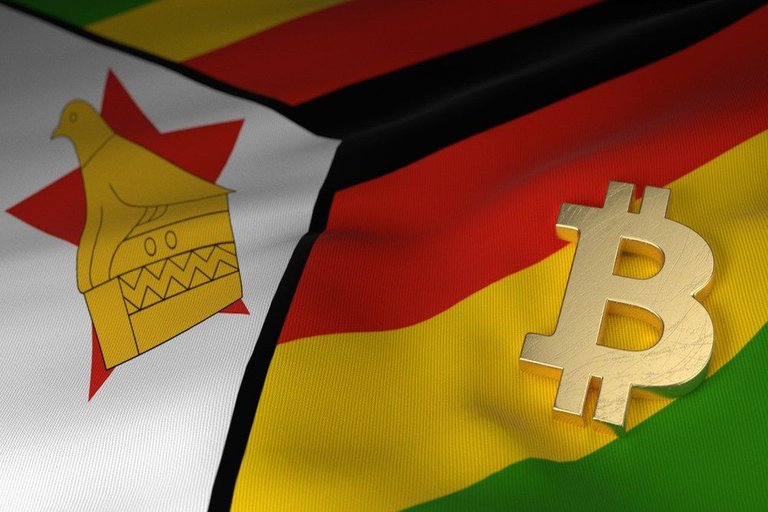
On what seems to be a dawn of new times in Zimbabwe, could this just be the eye of the storm? Crypto currencies in Zimbabwe are at an absolute premium and are almost double the price of international prices – a reflection of the Zimbabwean economy and its shortcomings.
Walking around the streets of Harare, the capital of Zimbabwe, there is a sense of elation as Robert Mugabe who was president for 37 years resigned. People all around seem to have a new found hope. From a crypto perspective, is it not the same oppressive government which is still in power and the leader has changed to one who used to be the hand man who implemented oppression to anyone who dared to oppose? Gukurahundi anyone?
Over the last decade, Zimbabweans have witnessed a challenging economy. Starting with hyper-inflation in 2007-2008 to a dollarized economy which was the strongest currency in the region, wealth creation has been a pipe dream for many Zimbabweans. Lucky ones would have found a way to preserve the value of their wealth or savings, real estate being one area which maintained its value. Our government has quite simply failed us on the economic front. Our currency has been mismanaged and corruption in government is systemic. The new president, Emmerson Mnangagwa says he will address this issues but based on his history and precedent, I’m not crossing my fingers.
Many Zimbabweans have come across bitcoin and cryptocurrencies from buying ex Japanese cars through the popular site beforward.jp. If you’re wanting to buy a car, beforward prefers to be paid in cryptocurrencies and then they will ship that car to Zimbabwe – please note, Zimbabwe last year spent more than a billion dollars on car imports. This led to a surge in cryptocurrency prices on the local exchange – golix.com. We then had a cash crisis which sent the premiums on dollars soaring and cryptocurrencies even further.
When I bought my first bitcoin, mid last year, the international price of bitcoin was about $700 USD and the local price was around $800. Not that much of a premium for purchasing. Now however, still facing a cash crisis and queues in the banks, the price of crypto currencies is almost double in Zimbabwe.
The bond note which the government claims to have only printed 200 million of, is also being charged at a premium and going to the bank if you’re lucky gets you a stack of coins. Zimbabweans quite simply need a much better store of value if they are to survive the turbulence of mismanagement by the current government.
Bitcoin, which is referred to as gold 2.0, has proved itself over the last 18 months in Zimbabwe to be a much better store of value than any other institutional asset class currently. If you believe in old mutual, give it a shot and see how far they take you. 2008 should be a point of reference for you before you run off to old mutual.
By adopting cryptocurrencies many Zimbabweans are learning the benefits of decentralized systems. The RTGS settlement system is inundated and cannot handle the amount of transactions it should be able to handle and the merchant settlement system is cracking due to outdated technology. Cryptocurrencies are quite simply, a much better option.
Bitcoin in my humble opinion works as a store of value. In an ideal situation, it shouldn’t be used as a transactional currency due to scalability issues and transactions per second limits. It’s simply like digital gold. Gold isn’t used as a mainstream transactional currency due to the inconvenience of it but it works very well as a store of value – same as bitcoin. What I would recommend as a transactional currency for Zimbabweans is Litecoin and Dash. These currencies are cheaper to use than ecocash and zipit and, they also have the global reach of bitcoin. It costs me less than 20c USD to send $500 worth of litecoin which will arrive within minutes to any person in the world. I did a Barclays RTGS for my rent last week and that money still hasn’t arrived to my landlord. Cryptocurrencies are quite simply much better currencies than current government backed fiat.
From a legal standpoint, Bitcoin in Zimbabwe is not legal tender. That means that you cannot force anyone to receive bitcoin as payment for goods or services. Personally I think it’s silly not to accept bitcoin and other cryptocurrencies as payment. If I run a shoe shop, which imports shoes from the UK, if everyone pays me in cryptos, I can purchase my orders in the UK with no hassles of trying to buy cash or send the money through a dated banking system to the UK. It will take me but two minutes to send the money to suppliers in the UK. It is not illegal to hold bitcoin as an individual.
Over the next series of articles we will be going over the impact that the blockchain will have in Zimbabwe and a particular favourite of mine EOS. There is a revolution coming in Zimbabwe, but, personally I don’t think it is the one people are expecting, it is one which will truly empower the people of Zimbabwe to be liberated and become a democratic and decentralized society.
CryptoZimbo

Congratulations @cryptozimbo! You have received a personal award!
Click on the badge to view your Board of Honor.
Do not miss the last post from @steemitboard:
Congratulations @cryptozimbo! You received a personal award!
You can view your badges on your Steem Board and compare to others on the Steem Ranking
Vote for @Steemitboard as a witness to get one more award and increased upvotes!